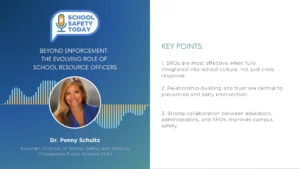New Report Emphasizes the Importance of Upskilling
GetSmarter, a 2U, Inc. brand, today announced the results of a survey exploring the future of work, as accelerated by the COVID-19 pandemic. The “Future of Work is Here” data highlights the value of continued learning as technology and automation change the workforce, details the importance of upskilling and reskilling, and emphasizes the value of soft skills.
The survey of over 8,000 global respondents across industries was first conducted by GetSmarter in November 2019, with a second survey in May 2020 to capture the new realities brought on by COVID-19. While workforces are now largely remote, the findings from the second deployment were directionally consistent with the results of the first wave of fieldwork, underscoring the value of this data and its learnings for both remote and in-person employers and employees.
Insights from the “Future of Work is Here” provide employers and employees around the globe with tangible takeaways on how they can boost their competitive advantage in today’s evolving workforce and respond effectively to megatrends that have been accelerated by the COVID-19 pandemic. Responses from professionals across job roles suggest that as the workforce continues to change at a rapid pace, employees and businesses will need to place a greater emphasis on continuous learning to stay relevant. Alongside clear recommendations for jobseekers on how to make themselves strong candidates for future employers, the report also provides first-hand learnings to employers—most specifically, human resource and learning development teams—on ways to keep employees engaged and the importance of upskilling to attract and retain top talent.
Key survey findings in the “Future of Work is Here” report showed that:
- Resumes need an upgrade: Hybrid jobs are here to stay. As candidates vie for new roles and promotions in the most challenging job market in over a decade, many are turning to short courses and certifications to gain the combination of technical and non-technical skills that are increasingly in demand. Employers are paying closer attention to candidates’ willingness to upskill—more than a third of those in hiring positions value evidence of continued learning more than anything else when considering candidates—and employees are showing their commitment to learning by adding short courses to their resumes. In fact, 70% of respondents believe that skills-based certificates across technical, function, and leadership areas are a valuable sign of a capability on a CV, and 35% of respondents believe that providing evidence of continued learning/up-to-date skills and adding of skills-based certificates to one’s CV will be the most important thing to include when applying for their next job.
- Upskilling is a business imperative and a shared responsibility between employees and employers: In today’s fast-moving world, the urgency to upskill is at an all-time high. Companies are placing a premium on finding employees committed to continuous learning and are making serious investments in ensuring that staff has access to learning opportunities. 54% of respondents agree that upskilling is a joint responsibility between a business and the individual, and 92% of respondents cited that they felt more engaged with their employer when learning opportunities were offered—highlighting a recruiting and retention opportunity for HR/people teams.
- Critical thinking, leadership, and interpersonal skills have never been more important: Even as technology and automation transform work, employees with well-developed soft skills perform better at their jobs and are easier to train and mentor. The data is clear: social and emotional competencies continue to be among the most desired traits for employees, with critical thinking, leadership or interpersonal skills ranked first by a large majority of employers.
“Regardless of geography or sector, the upskilling and reskilling imperative—accelerated by COVID-19—is driving growing demand for shorter, non-degree based learning for working professionals,” 2U Co-Founder and CEO Christopher “Chip” Paucek said. “In response, employees—on their own and with the support of their employers—are increasingly turning to short courses as an effective way to stay relevant and navigate this fast changing landscape while developing critical new leadership competencies and skills.”
GetSmarter, a 2U, Inc. brand, partners with the world’s leading universities to select, design, and deliver premium online short courses with a data-driven focus on learning gain. GetSmarter’s portfolio of 175 courses, offered in partnership with 19 of the world’s best non-profit universities, covers topics ranging from disruptive technologies to functional and leadership skills.
For a deeper look at the survey results, download the “Future of Work is Here” report.









